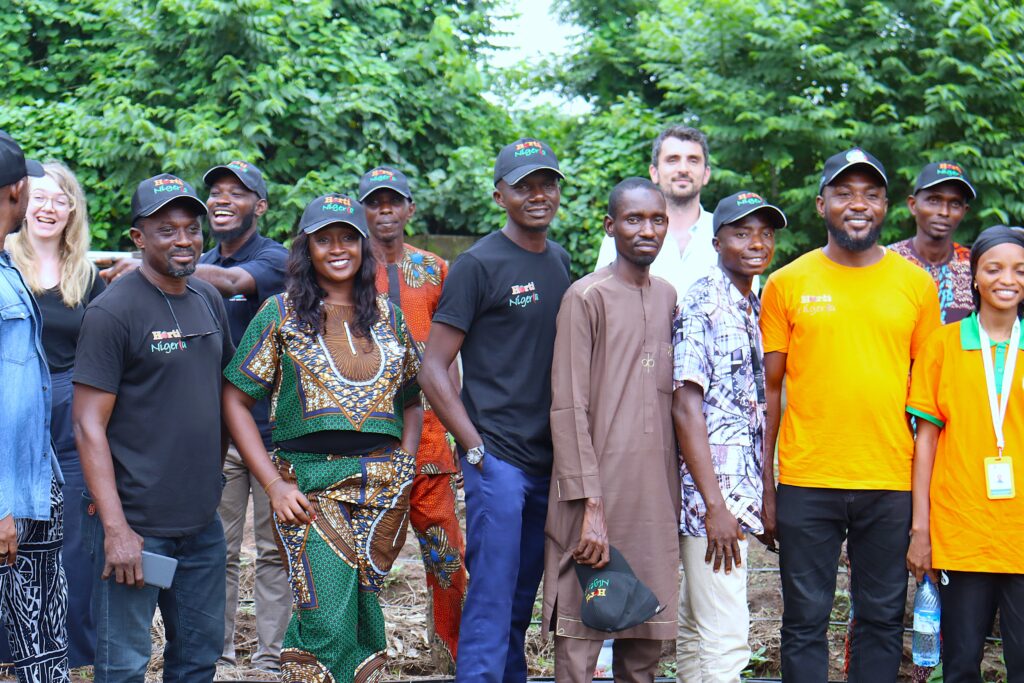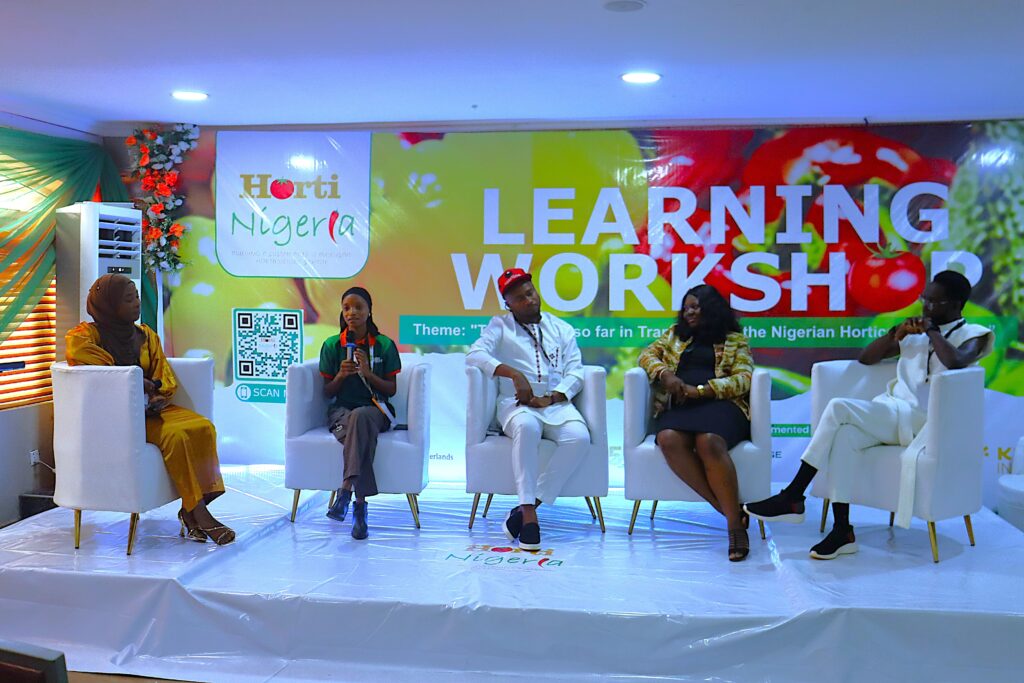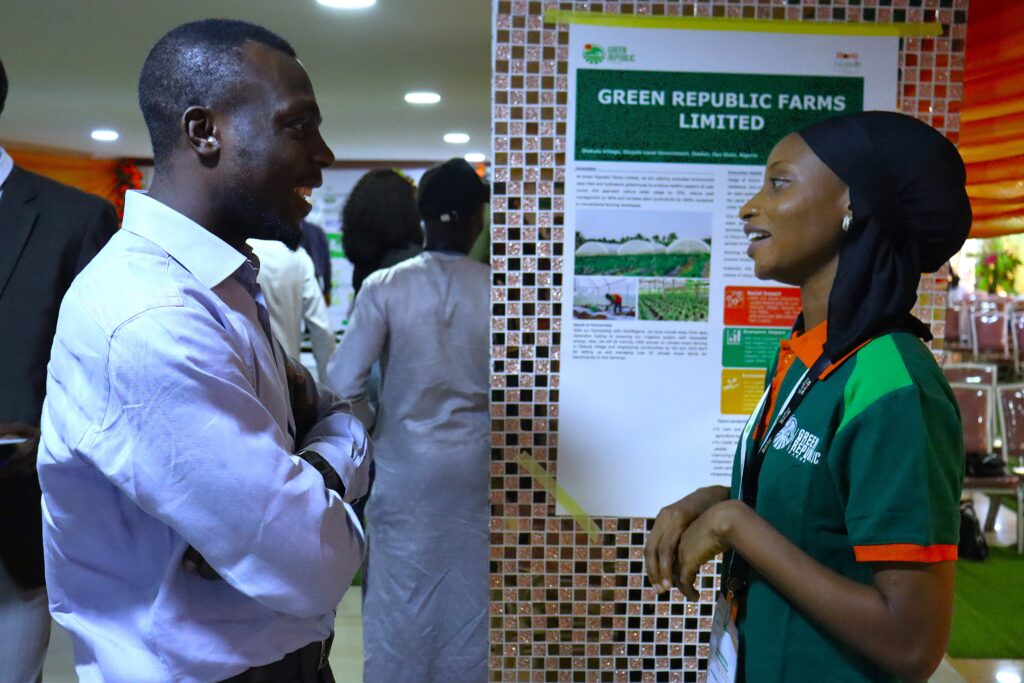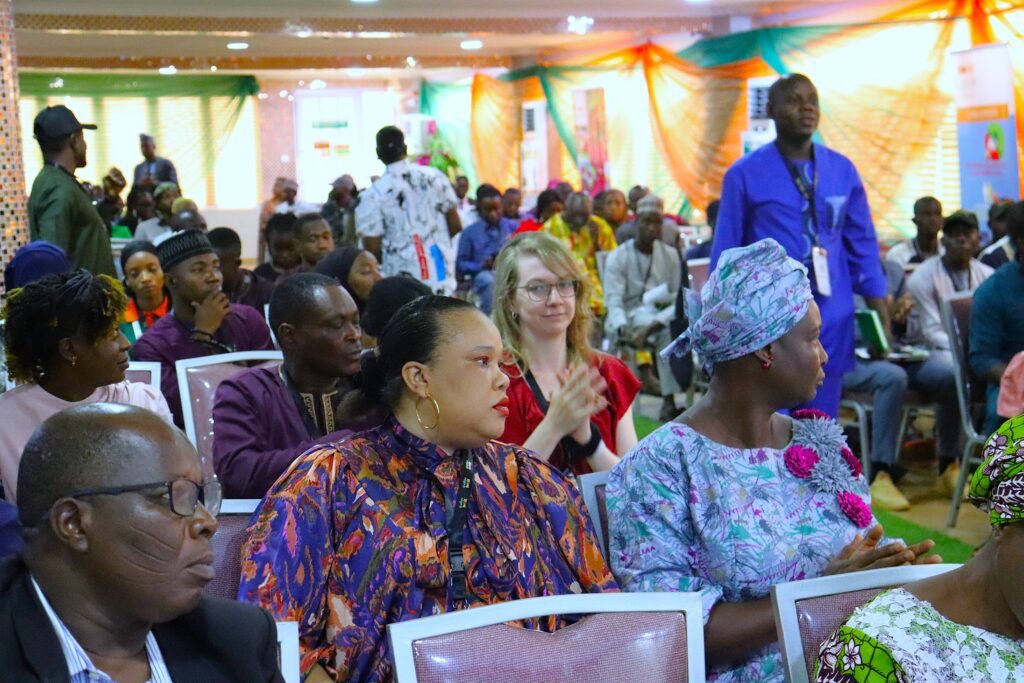
The recent HortiNigeria Learning Event, hosted in Abeokuta, Ogun State, gathered over 140 participants from both the public and private sector. This two-day event showcased the remarkable progress and achievements of the HortiNigeria program, sparking insightful discussions on critical topics in the horticulture sector and offering firsthand experiences and testimonials from partners, all aimed at shaping the future of horticulture in Nigeria.
The event commenced with a welcome address from Seun Ojambati, Senior Agricultural Policy Advisor representing the Embassy of the Kingdom of the Netherlands in Nigeria, accompanied by goodwill messages from various institutions and professionals. These opening remarks set a collaborative tone for the event, emphasizing the power of collective effort in driving sustainable and inclusive development in the Nigerian horticulture sector. Presentations offered a glimpse of the milestones HortiNigeria has achieved in enhancing productivity and income and fostering innovation across the sector in both the northern and southern areas of the country.
The highlight of the first day was a dynamic panel discussion on accessing finance. Experts from the finance and horticulture sectors shared insights on how farmers can access loans using the right approaches and appropriate documentation. This session explored strategies to overcome financial barriers and stimulate investment, paving the way for actionable insights to bolster financial inclusivity and support for farmers and entrepreneurs. Similarly, the gallery walk session provided participants with the opportunity to discuss the progress made in piloting innovations within various hubs, fostering cross-learning and enabling collaboration.

Participants also engaged in a World Cafe breakout session, where ideas flowed freely in an interactive setting. Themes such as market access, technological integration, and policy advocacy emerged as key drivers for advancing the sector.
The exchange of diverse perspectives enriched discussions, guiding participants toward practical solutions and actionable outcomes.
The second day involved a field visit to the Soilless Farm Lab in Awowo, giving firsthand insights into innovative farming technologies. Participants witnessed groundbreaking cultivation methods, the use of bio-waste to produce gas for cooking, and sustainable farming practices, demonstrating the potential for these technologies to revolutionize Nigeria’s vegetable landscape.
Participants engaged with farmers at the Federal University of Agriculture, Abeokuta (FUNAAB) who have been trained by the HortiNigeria program. This provided a deeper understanding of the ongoing initiatives aimed at building the capacity of horticulture professionals. Omotosho Agbani, Deputy Director of Horticulture at the Federal Ministry of Agriculture and Food Security (FMAFS), expressed her admiration for how the program has improved the livelihoods of youths within the sector. Representatives from financial institutions also shared that the event had enlightened them on the specific types of support needed by farmers and other actors within the sector.

Key Takeaways from the Event:
- Collaboration is Crucial: The importance of collective effort was emphasized, as sustainable growth in Nigeria’s horticulture sector requires the public and private sectors to work together.
- Significant Achievements: In addressing the national production gap in okra, pepper, and tomato, over 43,000 smallholder farmers in Nigeria adopted eco-efficient and Good Agronomic Practices (GAP) leading to the production of about 1 MMT onion, cabbage, cucumber, sweet corn, watermelon, and carrot in Kaduna and Kano states.
- Access to Finance: The panel discussion on accessing finance provided valuable information on how farmers can overcome financial barriers. Experts shared strategies for obtaining loans with the right approaches and appropriate documentation, pointing to the need for financial inclusivity and support for farmers and entrepreneurs.
- Innovative Practices: Field visits demonstrated innovative farming technologies, such as greenhouses and bio-waste utilization, demonstrating their potential to revolutionize Nigeria’s vegetable landscape and improve sustainability.
- Capacity Building: Engagement with HortiNigeria-trained farmers at FUNAAB illustrated the ongoing initiatives to build the capacity of horticulture professionals, which is essential for the sector’s growth.
- Market Access and Policy Advocacy: Discussions during the World Cafe breakout session led to the identification of market access, technological integration, and policy advocacy as key drivers for advancing the horticulture sector.
- Positive Impact on Youths: HortiNigeria has been able to significantly improve the livelihoods of youths within the sector, as noted by the Deputy Director of Horticulture at FMAFS Omotosho Agbani.
- Support from Financial Institutions: Representatives from financial institutions gained a deeper understanding of the types of support needed by farmers and other sector actors, which will help in providing targeted assistance.

As Nigeria’s horticulture sector continues to evolve, events like the HortiNigeria Learning Event serve as a catalyst for positive change. The impact of this event is expected to resonate across Nigeria, driving transformative change and laying the groundwork for a sustainable and inclusive horticulture sector in the country.
HortiNigeria (2021-2025) is implemented through a consortium led by IFDC that includes East-West Seed Knowledge Transfer (EWS-KT), Wageningen University and Research (WUR), and KIT Royal Tropical Institute and is funded by the Embassy of the Kingdom of the Netherlands in Nigeria.




